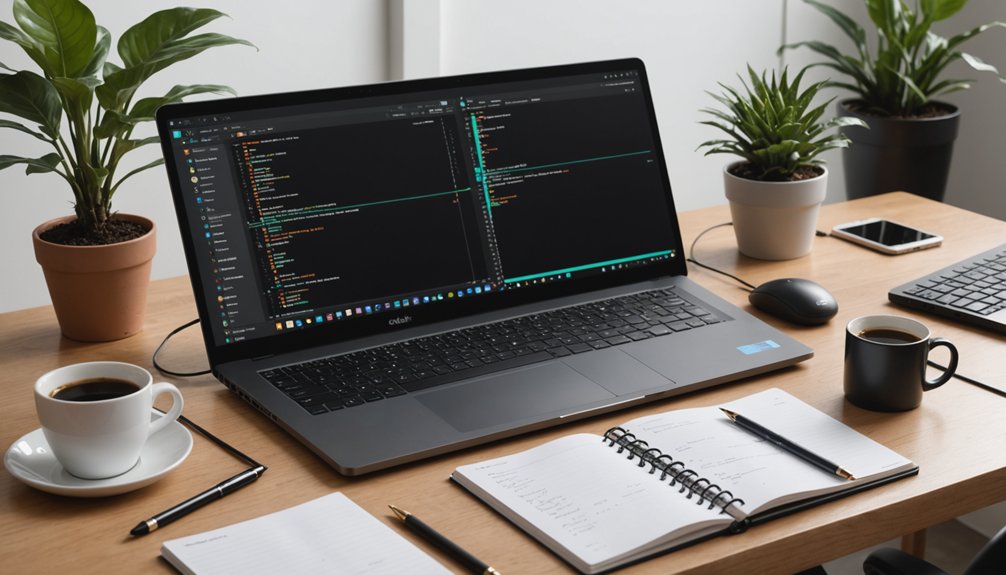Tablets have transformed business operations across multiple sectors. In hospitality, they streamline orders and payments. Retail stores use them as mobile POS systems, eliminating checkout lines. Financial services leverage tablets for client consultations and applications. Construction sites benefit from ruggedized tablets for blueprint management. Educational settings engage students through interactive learning. They're cost-effective, portable, and user-friendly. From customer feedback collection to inventory management, these devices offer versatility that traditional computers simply can't match.

While smartphones have dominated personal tech, tablet computers are revolutionizing how businesses operate. These lightweight devices are changing the game for companies of all sizes. No bulky laptops. No waiting forever for computers to boot up. Just grab and go.
Tablets shine in hospitality settings where staff use them to take orders and manage reservations. No more paper tickets or miscommunications with the kitchen. Customers love it too. Interactive menus on tablets? Way better than stained paper ones. Guests can see photos of dishes, customize orders, even pay right at the table.
Tablets eliminate paper chaos in restaurants while offering guests interactive menus with photos, customization, and tableside payment.
Retail businesses have embraced tablets as mobile point-of-sale systems. Sales associates can complete transactions anywhere in the store. No more lines. No more frustrated customers abandoning purchases. Many retailers report increased floor space by eliminating large checkout counters in favor of tablet-based POS systems.
The financial sector has jumped on board too. Banking representatives use tablets to assist customers, process applications, and display financial information. It's faster. It's cleaner. It works. Just as identity monitoring has become essential for digital security, tablets have become indispensable for modern banking operations.
Construction sites aren't exactly tech-friendly environments, but tablets have found their place there too. Foremen use ruggedized tablets to manage blueprints, track progress, and document site conditions. Try doing that with a stack of papers in the rain.
The education sector has perhaps benefited most dramatically. Interactive learning through tablets engages students in ways textbooks never could. Let's face it—kids actually want to use tablets. Similar to how Spotify users have reached 675 million monthly, tablet adoption in education continues to surge globally.
Cost is another major factor driving tablet adoption. The initial investment is typically lower than laptops, and maintenance costs are minimal. They start instantly, saving precious minutes throughout the workday. Those minutes add up.
Customer feedback collection has been transformed by tablets. Businesses collect real-time opinions through quick surveys. Hotels use them as digital concierges. Event planners deploy them for ticketing and purchases. The user-friendly interface of tablets makes them perfect for customers of all ages to interact with, enhancing the overall customer experience.
The truth is simple: tablets offer businesses portability, efficiency, and customer engagement opportunities that traditional computers can't match. They're not just smaller computers. They're better tools for specific business needs. And they're here to stay.
Frequently Asked Questions
How Do Tablet Computers Compare to Laptops for Business Use?
Tablets trump laptops in portability, battery life, and cost.
They're touch-friendly for presentations and customer interactions. Perfect for field work and quick tasks.
But laptops win for multitasking and software compatibility.
Real work needs real keyboards. Period.
IT departments find tablets easier to standardize but harder to support remotely.
Security features are solid on both.
Bottom line? Tablets excel for mobile, customer-facing roles.
Laptops remain kings of productivity.
Choose your weapon accordingly.
What Security Measures Protect Business Data on Tablets?
Tablets in business? Need security.
Companies use encryption for data, both stored and moving around. Strong passwords and biometrics keep devices locked down.
Remote wipe features? Essential when tablets go missing.
VPNs protect over public Wi-Fi. Not optional.
App management restricts what employees can install. No random downloads allowed.
Employee training matters too. People are often the weakest link.
They need to know about phishing scams and proper data handling. Security isn't just tech—it's people.
Can Tablets Replace Desktop Computers Entirely?
Tablets can't fully replace desktops yet. Period.
While they're great for basic tasks, they fall short when it comes to heavy lifting—gaming, graphic design, video production. The hardware just isn't there.
Small screens? Not ideal for serious multitasking. Software compatibility remains an issue too, especially with x86 applications.
Sure, tablets are improving rapidly and work well for many business functions, but desktop computers still reign supreme for complex, resource-intensive work.
Some things just need more horsepower.
How Long Do Tablet Batteries Typically Last During Business Meetings?
Tablet batteries typically last 7-8 hours during business meetings. Not bad.
But it varies wildly depending on what you're doing. Video conferencing? Battery plummets fast. Taking notes? Much longer runtime.
High-end business tablets like the Surface Pro 9 can stretch to 14 hours, while Samsung's Galaxy Tab S10 Ultra pushes 16 hours.
Screen brightness is the biggest killer. Wi-Fi and Bluetooth drain power too. Background apps? Silent battery assassins.
Power-saving mode helps, obviously.
Are Tablet Warranties Different for Business Versus Personal Use?
Yes, tablet warranties differ between business and personal use.
Business warranties often include perks like priority tech support and customized plans. Companies can negotiate special terms – something regular consumers can't do.
Accidental damage protection? More common in business packages. The return process tends to be smoother for corporate customers too, especially with bulk purchases.
Standard coverage duration remains similar though – one to two years.
Business or personal, unauthorized modifications still void that warranty. No exceptions there.




